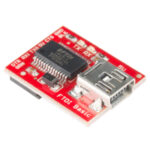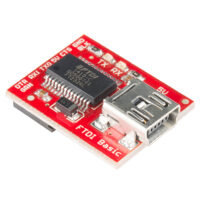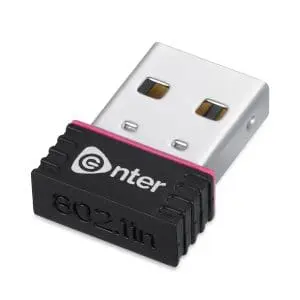FTDI Serial to USB Driver3 min read
Installing the FTDI Serial to USB Driver:
If you want to use an FTDI serial to the USB interface on your computer, then you need to install an FTDI driver.
The driver is available for various platforms, including MAC OS X, Windows, and Linux. It can be used to connect to a variety of different devices, including Arduino.
Download FTDI Serial to USB Driver (Here)
MAC OS X FTDI Serial to USB Driver:
If the FTDI Serial to USB Driver for Mac OS X is not working on your computer, you may try uninstalling it. The first step to uninstall the driver is to log in as the root user.
Follow the instructions provided by Apple. Once you are in the root user, you can change the required computer files.
Windows FTDI Serial to USB Driver:
To install the FTDI Serial to USB Driver for Windows, navigate to the FTDI website and click “Download.” The website has both 32 and 64-bit versions of the driver. Select the 64-bit version if your system supports 64-bit.
After downloading the driver, open Device Manager on your PC. Double-click on the serial port and click “Properties.” The properties dialog will show the manufacturer and version of the driver.
Once you have downloaded the driver file, make sure you have the correct hardware model. You will need to know the exact version of the Windows operating system and the model of your FTDI serial to USB device to install the right drivers.
Once you have the correct model, you can extract the file and follow the on-screen instructions to install the driver on your computer.
Linux FTDI Serial to USB Driver:
The Linux FTDI Serial to USB Drivers is a driver used for FTDI-based USB devices. The ftdi_sio driver binds to the device and creates /dev/ttyUSBx ports (major device number 188) that can be used for input and output.
This driver hides the USB nature of the communication from the application. When a USB device is plugged into the computer, it automatically acquires the device entry /dev/bus/USB/00*/*. The minor number is equal to the next available USB device number.
After installing the driver, you should check whether the Sealevel device has been correctly identified by the driver. Once it is, you can try interacting with it with the help of a command.
For some programs, it may be necessary to configure the file permissions. File permissions can be changed to enable or prevent access by particular users. For this, you should consult the distribution’s documentation.
Arduino:
The Arduino IDE comes with FTDI drivers already installed. You can also use the desktop version of Arduino, although you will not see the Serial Port option there.
Linux also has drivers for Arduino, but you will need to configure your permissions and give it administrative access. Alternatively, you can download the drivers from the Arduino website.
If you’re using OS X, you can determine which COM port is connected to your computer by opening up System Information (just like you would on a Windows OS). Select Hardware, USB tree, and find the FTDI COM port.
Depending on your operating system, you may receive a Windows-like error when you try to double-click the FTDI disk image. If this is the case, you may need to use an admin password to install the FTDI driver.
Other devices:
To install the FTDI Serial to USB driver for other devices, visit FTDI’s website and click on “Download”. The software download will be available in 32-bit and 64-bit versions.
Depending on the operating system you’re using, you may need to restart your computer before installing the new driver. Once installed, you can use the FTDI device on any other computer.
The FTDI Dual Serial USB adapter offers two RS232 serial ports with a maximum transfer rate of 0.5 Mbps per port.
This adapter also features COM Retention, remote wake-up, power management, and full RS232 modem control signals. The dual USB port allows you to connect multiple devices at once.
Warning: Array to string conversion in /srv/users/rasheed/apps/allmobitools/public/wp-content/plugins/neori-social-share-buttons/neori-social-share-buttons.php on line 37
Array




